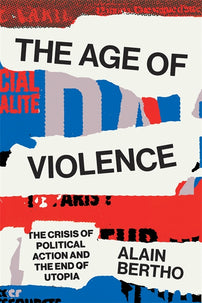Gilets jaunes: an extra-parliamentary political mobilization
The gilets jaunes are completely of this age, that of the Arab spring, the occupied squares and the ZAD." Alain Bertho, author of The Age of Violence, on the Gilets Jaunes.

The French authorities are afraid. In the last few weeks they have been confronted by the emergence of a new type of political mobilization. This is neither a mere cry of rage, nor a social movement with a mainly sociological identity. It is true that the movement originated among people in the countryside and small towns, the France of forgotten ‘territories’, which along with the working-class districts of the big cities has been crushed by the explosion of inequalities and insulted by the contempt of the government.
But to everyone’s surprise, including that of the opposition, this collective mobilization has persisted, built up a collective narrative and faced all political and trade- union organizations with difficult choices.
The orientations and proposals of local collectives are diverse. There are sometimes very large differences between the ideological systems and political subjectivities that they variously draw on, as I have previously pointed out.
The important question, however, is what gives this movement its unity, mobilization and popularity? Its unity is built on two main foundations. The first, which started from opposition to the diesel tax, rejects injustice and growing inequalities. The second is the refusal of any form of delegation and representation. The establishment of recognized spokespersons was viscerally rejected from the outset, just like any mediation by political parties or elections.
The gilets jaunes do not recognize any intermediaries. They set themselves up as direct interlocutors of the executive without parliamentary mediation. They note the contemporary division between the state and the people, the collapse of representative forms of democracy, and the collapse of ‘intermediate bodies’, particularly the trade unions. Emmanuel Macron, who played on this collapse, has been caught in his own trap.
The parliamentary democracy invented at the end of the eighteenth century seems to be reaching historical limits, as witness the explosion of populism. French electoral populism, whether right or left, believed for a moment that it could ride this wave. But it is failing on its own ground. The demand for new elections, quickly put forward by both Jean Luc Mélenchon’s Unbowed France and Marine Le Pen’s National Rally, appears at best as an attempt to harvest this anger at the polls, at worst as a way to put an end to the mobilization. Didn’t De Gaulle put a stop to May 68 by dissolving the National Assembly? In any case, the delegated (and dilatory) electoral process has lost its credibility and legitimacy.
This movement makes a great democratic demand. But the democracy it is embodies is a democracy of immediate demands and a democracy of popular expertise.
For a moment there was talk of relaunching the permanent forum of Nuit Debout. What would have been the point? Today every local collective blockading roundabouts, car parks and motorway tollbooths is a Nuit Debout. A common narrative is being developed. A popular expertise of the situations experienced is being built up. Why should an ounce of this new power be delegated to professionals in political speech? For every François Ruffin[1] who has understood and experienced this, how many professionals in the delegation of power remain as deaf and blind as ever, both on the government and the opposition side.
In this open breach, anger from other sources also finds an opportunity to give voice. This is the case with the secondary-school movement, which is expressing its rage with even more violence than on previous mobilizations. But the repression against them is terrible. The images of collective arrests are staggering. This only illustrates the degree of fear on the part of the authorities.
The gilets jaunes are completely of this age, that of the Arab spring, the occupied squares and the ZAD. No one can predict the future, how their struggle with the government will end. What is certain is that we shall see other mobilizations of this type in the coming years. The twilight of parliamentarianism has only just begun.
Originally published by Mediapart.
Translated by David Fernbach
[1] [François Ruffin is a journalist and filmmaker, and was one of the leading figures in the ‘Nuit debout’ (Rise up at night) movement of spring 2016; he was elected to the National Assembly in June 2017.]
[book-strip index="1" style="display"]

